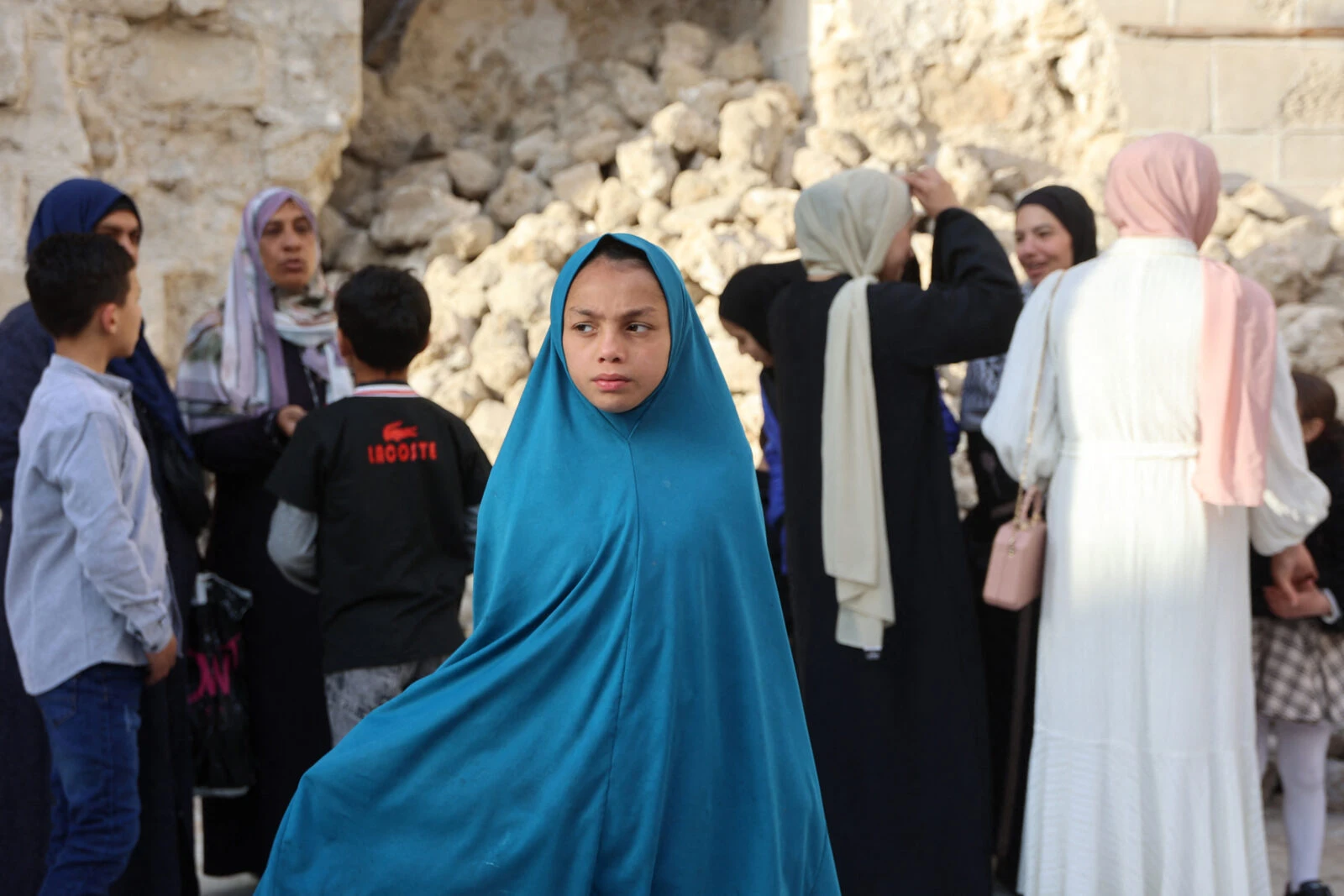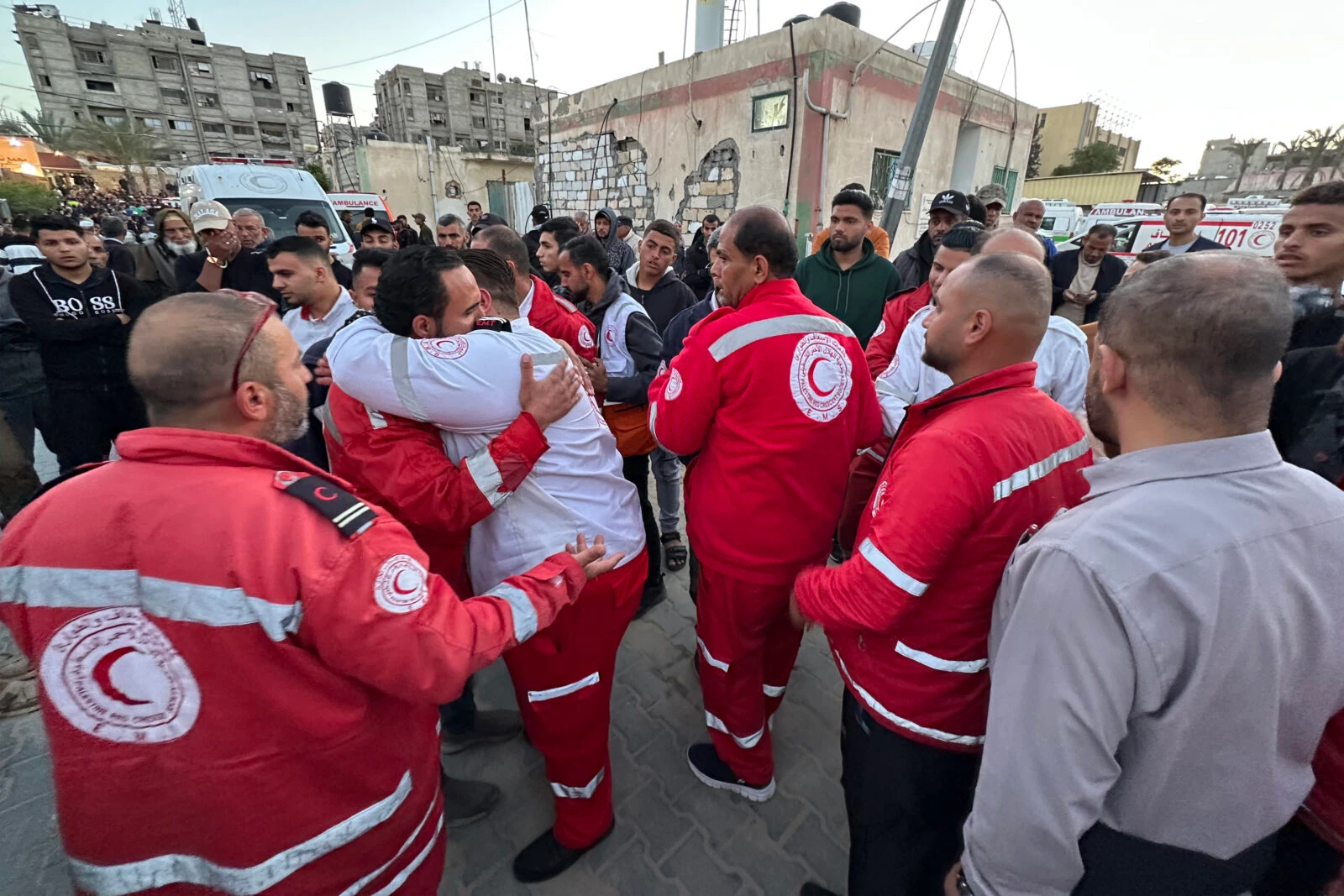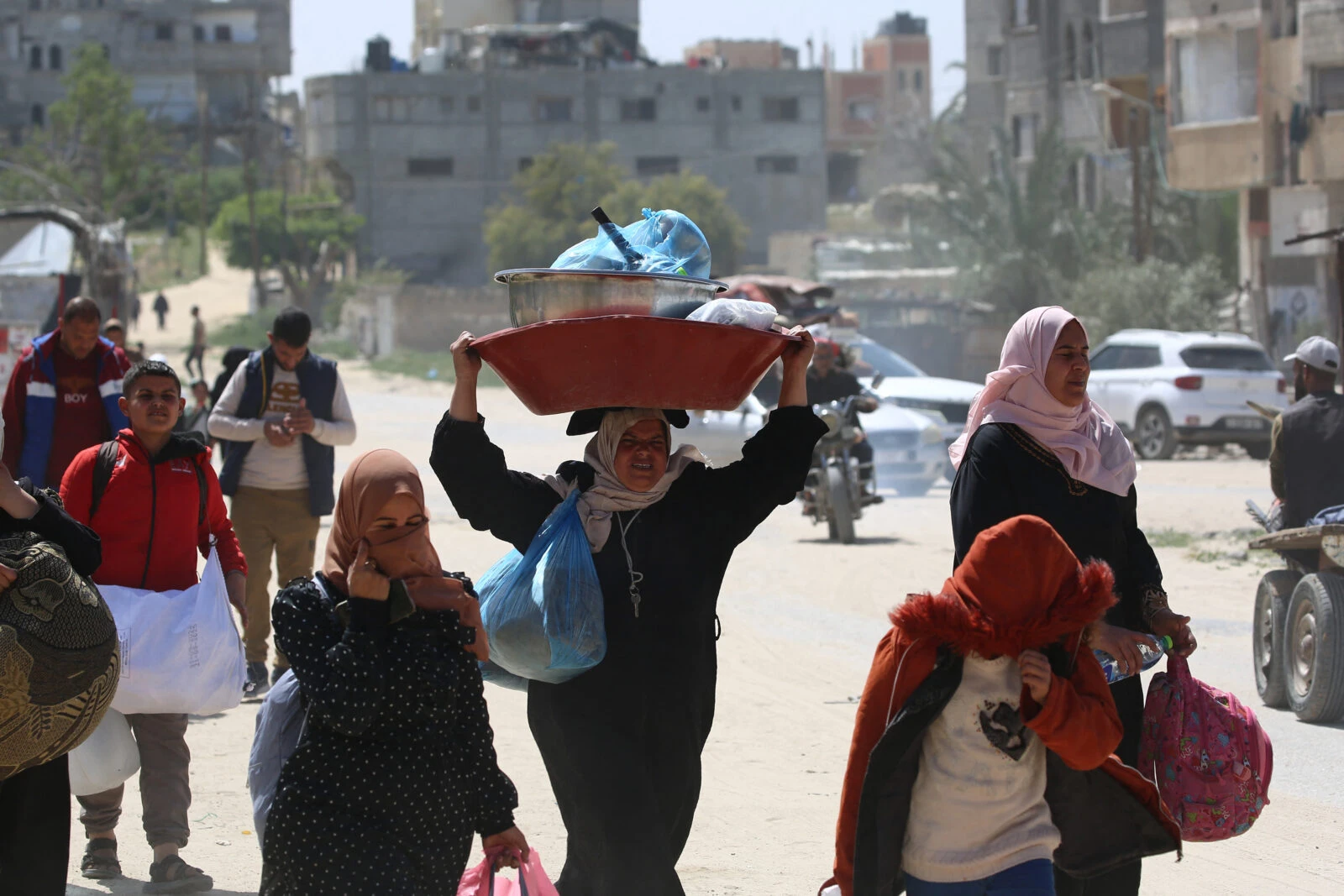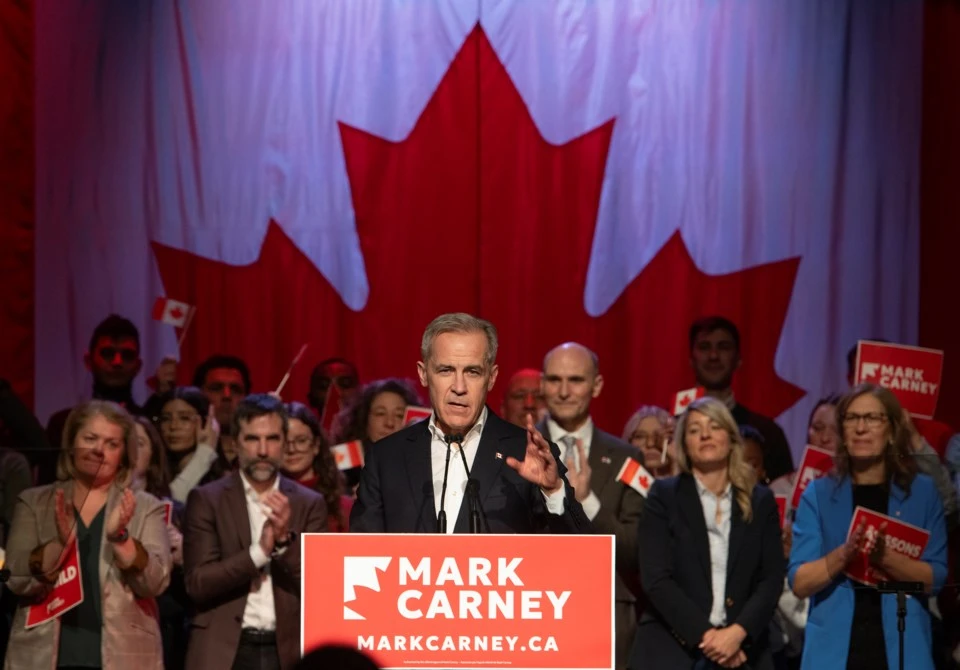Israel expands Gaza offensive to occupy large areas
 An Israeli soldier operates a tank at a position along Israel's southern border with the northern Gaza Strip on March 19, 2025 (AFP Photo)
An Israeli soldier operates a tank at a position along Israel's southern border with the northern Gaza Strip on March 19, 2025 (AFP Photo)
Israel has announced a significant escalation in its military campaign in Gaza, with Defense Minister Israel Katz confirming on Wednesday a significant expansion of military operations in the Gaza Strip, stating that the army will seize “large areas” of the territory as part of an ongoing campaign to dismantle armed groups’ infrastructure.
The move comes as the United Nations condemned an Israeli strike on a humanitarian convoy that killed 15 medical personnel and aid workers.
Israel Gaza offensive targets wider territory
On Wednesday, Katz stated that the Israeli army would expand its presence in Gaza to “destroy and clear the area of terrorists and terrorist infrastructure.” The newly seized areas will be incorporated into Israeli-controlled security zones. The extent of the land to be taken was not specified.
The offensive follows a renewed ground campaign launched on March 18 after the collapse of a nearly two-month cease-fire.
According to Gaza’s health ministry, the conflict has so far resulted in at least 50,399 Palestinian deaths, most of them civilians.

UN condemns deadly attack on emergency convoy
On Tuesday, the United Nations condemned an Israeli military strike that killed 15 humanitarian and medical workers in Gaza on March 23.
“I condemn the attack by the Israeli army on a medical and emergency convoy,” said U.N. High Commissioner for Human Rights Volker Turk.
He called for a full investigation into the incident, which further intensified international scrutiny over Israel’s conduct in the conflict.

Humanitarian crisis worsens as civilians displaced
Since the latest escalation, over 140,000 people have been displaced again, according to UN estimates. With limited fuel supplies and ongoing military activity, many civilians have been forced to flee with few belongings and limited access to essentials like food and water.
Israeli forces have created expanded buffer zones and security corridors inside Gaza, including the so-called Netzarim corridor.
Evacuation warnings have been issued in southern cities such as Rafah and Khan Yunis, directing civilians to Al-Mawasi, designated a humanitarian zone.

Netanyahu and Katz call for disarmament of Hamas
Israeli Prime Minister Benjamin Netanyahu stated that Israel is in the “final stage” of the war, reiterating that Hamas must surrender its weapons and allow its leadership to leave Gaza. “Hamas will lay down its weapons. Its leaders will be allowed to leave,” he told his cabinet.
Defense Minister Katz echoed the message, urging civilians to act against Hamas and return Israeli hostages. He described this as “the only way to end the war.”
Ceasefire talks and controversial relocation proposals
Netanyahu rejected criticism over the government’s efforts to secure the release of hostages and said Israel is “negotiating under fire.” He indicated that recent mediation efforts had caused “cracks” in Hamas’s position.
Talks mediated by Egypt, Qatar, and the United States are ongoing. A senior Hamas official said the group had accepted a new ceasefire proposal from mediators and called on Israel to do the same. Netanyahu’s office confirmed receiving the offer and submitted a counterproposal.
Meanwhile, proposals to permanently relocate Gaza’s population—initially floated by former U.S. President Donald Trump—have gained support among right-wing Israeli politicians. Netanyahu has stated his intention to facilitate voluntary departure from Gaza.
A viral video satirizing the idea of redeveloping Gaza as a coastal resort has sparked public debate, though its creator emphasized it was intended as satire.
As the conflict escalates, Israel has also conducted strikes in southern Lebanon and Syria, including a recent operation targeting a Hezbollah commander in Beirut. In the occupied West Bank, Israeli forces continue operations targeting armed groups allegedly backed by Iran.
The war has displaced nearly all of Gaza’s 2.3 million residents and left widespread devastation across the enclave.



